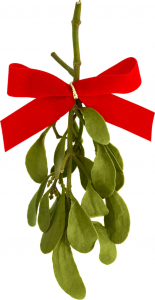Keeping Your Animals Safe for the Holidays

Did you know that many of the plants that are popular around this time of the year can be extremely harmful to your pets? Don’t be fooled in thinking if it’s okay for wildlife to eat it, it won’t hurt my pet. Here is a rundown of some dangerous seasonal plants for both dogs and cats:
- American Holly – American Holly contains potentially toxic compounds that can cause gastrointestinal irritation. While the toxin exists throughout the entire plants the leaves are less toxic but and more prickly, whereas doing more damage to the digestive tract if eaten. A more serious concern is within the berries where the toxin is more concentrated. Best to keep your holly bushes outside away from your dog and if you are using is for decoration inside, keep it far from your pets reach.
- Amaryllis – Every single part of this plant is poisonous. If your pet eats the flower or the stem they will more than likely vomit. However, consuming the bulb is the most harmful. It causes hemorrhagic gastroenteritis and neurological issues.
- English Ivy – Often used in Christmas decorations, it is toxic to pets. If consumed in large amounts symptoms can include difficulty in breathing, gastrointestinal problems, delirium, hallucinations, and seizures.
- Kalanchoe – If this flowering plant is eaten, it can lead to gastrointestinal issues. Make sure it is placed in a room or in a location where your pet cannot reach it.
- Mistletoe – While there are many varieties of mistletoe, the specific toxins and dangers depend on its identity. If your pet eats a few leaves or berries of Mistletoe, poisoning effects can range from nausea, vomiting, diarrhea, blurred vision, slow heart beat to even death. Some store-bought mistletoe may substitute plastic berries or other plastic parts which can be equally dangerous causing gastrointestinal problems so severe that your pet may require induced vomiting or even surgery if the pieces stay in your pet’s digestive tract.
- Poinsettia – Although the flowers and leaves can cause an upset tummy or vomiting if eaten, according to the ASPCA (American Society for Prevention of Cruelty to Animals) it is a myth that this Christmastime plant is deadly….so you do not have to banish it from your home. It is now classified as mildly toxic if eaten. In addition, the sap of the plant may cause a mild itch if it comes in contact with the skin. So while you can still decorate your home with a poinsettia, you’ll want to keep it up and out of reach of their paws!
- Yew – Often used in decorations, this plant is an evergreen shrub with red berries. If digested, the toxins can quickly cause irregular heartbeats which can be life-threatening in itself. Other symptome include: headaches, dizziness, difficulty in breathing, gastrointestinal problems, convulsions, trembling, dilated pupils and a coma.
If you think your pet has consumed any of the above plants, you should immediately contact your vet, the nearest emergency vet, or the Pet Poison Helpline (855-764-7661, a fee of $59 applies).
Don’t forget to give us a call to book your holiday visits as soon as possible!
